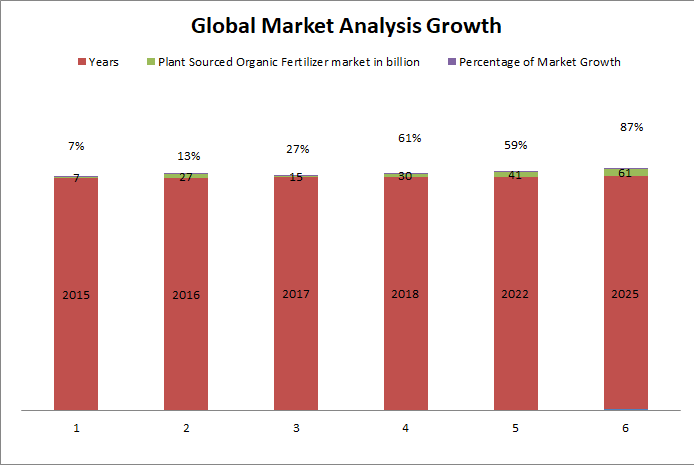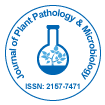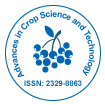Theme: Modern Exploration Technologies in Plant Researches
Renowned Speakers
Plant Science & Physiology 2019
Conference Series Ltd is overwhelmed to announce the commencement of 4th International Conference on Plant Science & Physiology to be held during March 25-26, 2019 in Sydney, Australia. The upcoming conference will be organized around the theme “Modern Exploration Technologies in Plant Researches”.
Conference Series Ltd organizes 1000+ Conferences every year across USA, Europe & Asia with support from 1000 more scientific Societies and Publishes 700+ Open Access Journals which contains over 50000 eminent personalities, reputed scientists as editorial board members.
The Plant Science & Physiology 2019 theme has broad interests, which address many aspects of Plant Biology, Plant Science, Plant Physiology, Plant Biotechnology, and Plant Pathology. Research in the theme includes looking at plant resistance to parasites and pathogens, studying molecular and physiological adaptations to biotic and abiotic stress, identifying signaling mechanisms in plant responses to disease and using RNA silencing as an antiviral mechanism. Metabolic engineering of plants for producing biodegradable plastics, healthier sugars, and biofuel production and plants grow in association with complex communities of organisms. Phytobiomes encompass all of the organisms and all aspects of the environment that influence or are influenced by plants.
Target Audience & Conference Opportunities
| For Researchers and Faculty Members: | Speaker Presentations |
| Poster Display | |
| Symposium hosting (4-5 member team) | |
| Workshop organizing | |
| For Universities, Associations & Societies: | Association Partnering |
| Collaboration proposals | |
| Academic Partnering | |
| Group Participation | |
| For Students and Research Scholars: | Poster Competition (Winner will get Best Poster Award) |
| Young Researcher Forum (YRF Award to the best presenter) | |
| Student Attendee | |
| Group registrations | |
| For Business Delegates: | Speaker Presentations |
| Symposium hosting | |
| Book Launch event | |
| networking opportunities | |
| Audience participation |
| For Product Manufacturers: | Exhibitor and Vendor booths |
| Sponsorships opportunities | |
| Product launch | |
| Workshop organizing | |
| Scientific Partnering | |
| Marketing and Networking with clients |
| Plant Sciences and Plant Research | Plant Molecular Biology |
| Plant Genetics and Genomics | Agronomy and Agricultural Research |
| Plant Nutrition and Soil Sciences | Plant Biochemistry |
| Plant Ecology and Taxonomy | Plant Anatomy and Morphology |
| Plant Biology | Plant and Environment |
| Plant Diseases and Bryology | Plant Hormones |
| Plant Physiology and Biochemistry | Plant Pathology and Mycology |
| Microbiology and Phycology | Plant Biotechnology |
| Plant Tissue Culture | Plant Metabolic Engineering |
Track 01: Plant Sciences and Plant Research
Plant Science ranges from creating atomic systems for the hereditary building to biological research in the field of plant science. At last the common items needs to add to principal learning of fundamental natural procedures identified with improvement and wellbeing and the manageable creation of more solid sustenance’s, blossoms and high-esteem bio-based items.
1 Plant Science Research
2 Plant Cell
3 Plant Protection
4 Extracting ingredients for cosmetics using green technologies
5 Plant Science business practices
6 Natural replacements for petrochemical ingredients
7 Agronomy and Crop Sciences
Upcoming Conferences: 12th International Conference on Agriculture and Horticulture, July 09-10, 2018, Sydney, Australia, 12th World Congress on Aquaculture & Fisheries, September 19-20, 2018, Tin Shui Wai, Hong Kong, 13th International Conference on Agriculture & Horticulture, September 10-12, 2018, Zurich, Switzerland, World Congress on Plant Pathology & Plant Biotechnology, September 24- 25, 2018, Dallas, USA, Global Summit on Agriculture, Food Science and Technology, October 26-27, 2018, Boston, Massachusetts, USA
Track 2. Plant Genetics and Genomics
It is incomplete inactivation of transgene articulation. To review the impact of changing natural conditions on epigenetic designs, plants region unit perfect model systems. We tend to the region unit especially intrigued to get a handle on anyway beyond any doubt genomic areas progress toward becoming focuses for epigenetic alteration and the way natural pressure influences epigenetic factor direction. Our applied work investigates, however, transgene silencing may be prevented and the way epigenetic variation may be exploited for novel breeding ways
1 Functional genomics
2 Gene silencing
3 RNA sequencing
4 Plant stem cells
5 Genotyping-by-sequencing for plant breeding and genetics
6 Rice genomics
7 Single cell genomics
8 Epigenomics
9 Cereal Genomics
10 Crop Genomics
11 Plant Adaptive Genomics
12 Genomics of plant responses to environmental stress
Upcoming Conferences: 12th International Conference on Agriculture and Horticulture, July 09-10, 2018, Sydney, Australia, 12th World Congress on Aquaculture & Fisheries, September 19-20, 2018, Tin Shui Wai, Hong Kong, 13th International Conference on Agriculture & Horticulture, September 10-12, 2018, Zurich, Switzerland, World Congress on Plant Pathology & Plant Biotechnology, September 24- 25, 2018, Dallas, USA, Global Summit on Agriculture, Food Science and Technology, October 26-27, 2018, Boston, Massachusetts, USA
Track 3 Plant Nutrition and Soil Sciences
Plant Nutrition and Soil Science is the investigation of the capacities and elements of supplements in plants, soils and biological systems and of plant generation forms with the objective to enhance the development of plants to build the nature of reap items, to enhance soil richness, to advance the reusing of supplements, to diminish the cost of assets, to limit treatment - related ecological effects.
1 Nutrient management
2 Macronutrients & micronutrients
3 Mineral fertilization
4 Nutrient balance and nutrient deficiencies
5 Soil fertility, Fertilizers and Pedology
6 Molecular Basis of Chromoplast Biogenesis
7 Genomic and Genetic Analysis of Crop Adaptation to Soil Abiotic Stresses
8 Bioinformatics Analysis of Transgene Effects on Crop Plants
9 Role of Root System Architecture and Function in Improving Crop Nutrient
10 RNAseq to Accelerate Nutritional Quality
11 Soil Ecology, Waste Management & Environmental Microbiology
12 Soil Microbial Genomics & Evolutionary Biology
Upcoming Conferences: 12th International Conference on Agriculture and Horticulture, July 09-10, 2018, Sydney, Australia, 12th World Congress on Aquaculture & Fisheries, September 19-20, 2018, Tin Shui Wai, Hong Kong, 13th International Conference on Agriculture & Horticulture, September 10-12, 2018, Zurich, Switzerland, World Congress on Plant Pathology & Plant Biotechnology, September 24- 25, 2018, Dallas, USA, Global Summit on Agriculture, Food Science and Technology, October 26-27, 2018, Boston, Massachusetts, USA
Track 4. Plant Ecology and Taxonomy
Research incorporates broad regions of Ecology (Marine, Freshwater and Terrestrial), Behavioral Ecology; Ecophysiology, Animal Behavior; Molecular Ecology, Conservation (counting Conservation Genetics), Aquaculture, Systematics (both Molecular and Morphological), and Environmental Economics.
1 Botany plant ecology
2 Components of Plant and forest ecology
3 Advanced plant and Forest ecology
4 Application of plant and forest ecology
Upcoming Conferences: 12th International Conference on Agriculture and Horticulture, July 09-10, 2018, Sydney, Australia, 12th World Congress on Aquaculture & Fisheries, September 19-20, 2018, Tin Shui Wai, Hong Kong, 13th International Conference on Agriculture & Horticulture, September 10-12, 2018, Zurich, Switzerland, World Congress on Plant Pathology & Plant Biotechnology, September 24- 25, 2018, Dallas, USA, Global Summit on Agriculture, Food Science and Technology, October 26-27, 2018, Boston, Massachusetts, USA
Track 5. Plant Biology
The science of plants contrasts with creatures, their indications and reactions are very extraordinary. At times, a plant can essentially shed tainted leaves or blooms to keep the spread of malady, in a procedure called abscission. Most creatures don't have this choice as a method for controlling disease. Plant maladies creatures themselves additionally contrast from those causing disease in creatures since plants can't generally spread disease through easygoing physical contact. Plant pathogens tend to spread through spores or are conveyed by creature vectors.
1 Membrane trafficking in Plant Cell
2 Plant Anatomy
3 Cell Signaling
4 Plant Cell types and their role
5 Plant cell biology in the new millennium: Tools and insights
6 Cell Biology
Upcoming Conferences: 12th International Conference on Agriculture and Horticulture, July 09-10, 2018, Sydney, Australia, 12th World Congress on Aquaculture & Fisheries, September 19-20, 2018, Tin Shui Wai, Hong Kong, 13th International Conference on Agriculture & Horticulture, September 10-12, 2018, Zurich, Switzerland, World Congress on Plant Pathology & Plant Biotechnology, September 24- 25, 2018, Dallas, USA, Global Summit on Agriculture, Food Science and Technology, October 26-27, 2018, Boston, Massachusetts, USA
Track 6. Plant Diseases and Bryology
Plant pathology is the logical disclosure of diseases in plants caused by pathogens and ecological conditions. Living beings can cause viral diseases incorporate growths, microorganisms, infections, viroids, infection like organisms, phytoplasma, protozoa, nematodes and trustworthy plants. A plant thought about bothersome, ugly, or troublesome, particularly one that develops where it is no need and regularly develops or spreads fast or replaces desired plants.
1 Plant Immune System and Plant Virology
2 Phytoplasma and Nematodes
3 Molecular and genetic basis of plant-insect interaction
4 Plant Microbial Interactions
5 Plant Diseases Epidemology
6 Plant Bacteriology
7 Clinical Plant Pathology & Nematology
8 Plant Virology
9 Plant Fungal Pathology
Upcoming Conferences: 12th International Conference on Agriculture and Horticulture, July 09-10, 2018, Sydney, Australia, 12th World Congress on Aquaculture & Fisheries, September 19-20, 2018, Tin Shui Wai, Hong Kong, 13th International Conference on Agriculture & Horticulture, September 10-12, 2018, Zurich, Switzerland, World Congress on Plant Pathology & Plant Biotechnology, September 24- 25, 2018, Dallas, USA, Global Summit on Agriculture, Food Science and Technology, October 26-27, 2018, Boston, Massachusetts, USA
Track 7. Plant Physiology and Biochemistry
The Study of plant morphology, development, and multiplication in living plants and furthermore worried about the plant morphology and some fundamental procedure, for example, photosynthesis, respiration, plant nourishment, plant hormone functions, tropisms, nastic developments, photograph morphogenesis, natural physiology (plant sicknesses), seed germination, torpidity and stomata capacity and transpiration, plant water relations. Plant biochemistry is related to molecular science such as macromolecules and plant metabolisms, Biomolecules, carbohydrates, amoni acid, lipids.
1 Post Harvest Physiology of Plants
2 Extracting ingredients for cosmetics using green technologies
3 Sustainable business practices
4 Natural replacements for petrochemical ingredients
5 Chitosan as a basic for personal care products
6 Advances in Plant Science research
7 Plant hormones
8 Biotic and Abiotic stress in plants
9 Plant diseases
10 Plant Biosystems & Biodiversity
Upcoming Conferences: 12th International Conference on Agriculture and Horticulture, July 09-10, 2018, Sydney, Australia, 12th World Congress on Aquaculture & Fisheries, September 19-20, 2018, Tin Shui Wai, Hong Kong, 13th International Conference on Agriculture & Horticulture, September 10-12, 2018, Zurich, Switzerland, World Congress on Plant Pathology & Plant Biotechnology, September 24- 25, 2018, Dallas, USA, Global Summit on Agriculture, Food Science and Technology, October 26-27, 2018, Boston, Massachusetts, USA
Track 8. Microbiology and Phycology
Upcoming Conferences: 12th International Conference on Agriculture and Horticulture, July 09-10, 2018, Sydney, Australia, 12th World Congress on Aquaculture & Fisheries, September 19-20, 2018, Tin Shui Wai, Hong Kong, 13th International Conference on Agriculture & Horticulture, September 10-12, 2018, Zurich, Switzerland, World Congress on Plant Pathology & Plant Biotechnology, September 24- 25, 2018, Dallas, USA, Global Summit on Agriculture, Food Science and Technology, October 26-27, 2018, Boston, Massachusetts, USA
Track 9. Plant Tissue Culture
Plant tissue culture is the development of plant cells furthest an in intact plant. It relies upon keeping up plant tissue in lab conditions on an appropriate supplement medium. The way of life can be maintained as a mass of undifferentiated cells for an expansive zone for a timeframe, or recovered into entire plants. The different methods utilized as a part of plant tissue culture. Plant tissue culture is generally used to create clones of a plant in a technique known as small scale proliferation with various stages. Plant Biotechnology is noticeable in the field of prescription interfacing biotechnology and bioinformatics, the molecular portrayal of restorative plants; molecular farming; and result from science, nanotechnology, pharmacology, farming, Biomass and biofuels too. Plant Biotechnology is the innovation which is utilized for getting present day item with high return and at faster rate.
1 Micropropagation in Plants
2 Plant Tissue culture applications
3 Green Plant Biotechnology
4 Recent Advances in Plant Biotechnology
5 Advancements in Plant Tissue Culture
6 Biomass, Biofuel and Byproduct of various Plants
Upcoming Conferences: 12th International Conference on Agriculture and Horticulture, July 09-10, 2018, Sydney, Australia, 12th World Congress on Aquaculture & Fisheries, September 19-20, 2018, Tin Shui Wai, Hong Kong, 13th International Conference on Agriculture & Horticulture, September 10-12, 2018, Zurich, Switzerland, World Congress on Plant Pathology & Plant Biotechnology, September 24- 25, 2018, Dallas, USA, Global Summit on Agriculture, Food Science and Technology, October 26-27, 2018, Boston, Massachusetts, USA
Track 10. Plant Molecular Biology
Plant breeding is the technology which is used for genetic modification, to place particular traits into plants. Molecular breeding such as marker assisted selection and doubled haploids are immensely useful techniques. A technique of Plant Breeding is utilized by the organic cultivation.
1 Transgenic Plants and Green Revolution
2 Plant breeding in organic agriculture
3 Plant Metabolism and Metabolic Engineering
4 Modern Plant Breeding Techniques
5 Molecular biology of plant cell
Upcoming Conferences: 12th International Conference on Agriculture and Horticulture, July 09-10, 2018, Sydney, Australia, 12th World Congress on Aquaculture & Fisheries, September 19-20, 2018, Tin Shui Wai, Hong Kong, 13th International Conference on Agriculture & Horticulture, September 10-12, 2018, Zurich, Switzerland, World Congress on Plant Pathology & Plant Biotechnology, September 24- 25, 2018, Dallas, USA, Global Summit on Agriculture, Food Science and Technology, October 26-27, 2018, Boston, Massachusetts, USA
Track 11. Agronomy and Agricultural Research
Agriculture deals with in genetics, physiology, biochemistry, biophysics, and molecular biology, soil, biodiversity. Agriculture science is related to techniques, including the application of agronomic research. Horticulture is an area of agricultural Science having the cultivation of medicinal plants, fruits, vegetables, nuts, seeds, herbs, sprouts, mushrooms, algae, flowers, seaweeds and non-food crops such as grass and ornamental trees and plants. Agricultural biotechnology is a specific area of agricultural science includes the use of scientific tools and techniques, including manipulation of genome, genetic markers, molecular diagnostics, vaccines, and plant biotechnology, to modify living organisms: plants, animals, and microorganisms.
1 Agricultural Biotechnology
2 Agricultural Genetics and Microbiology
3 Horticulture Science
4 Plastics in agriculture and Agriculture Chemistry
5 Agronomy and Crop Sciences
6 Organic agriculture
7 Agricultural Chemistry and Landscape design
8 Biomass exploitation
9 Ecological Agriculture - Sustainable Agriculture
Upcoming Conferences: 12th International Conference on Agriculture and Horticulture, July 09-10, 2018, Sydney, Australia, 12th World Congress on Aquaculture & Fisheries, September 19-20, 2018, Tin Shui Wai, Hong Kong, 13th International Conference on Agriculture & Horticulture, September 10-12, 2018, Zurich, Switzerland, World Congress on Plant Pathology & Plant Biotechnology, September 24- 25, 2018, Dallas, USA, Global Summit on Agriculture, Food Science and Technology, October 26-27, 2018, Boston, Massachusetts, USA
Track 12. Plant Biochemistry
Upcoming Conferences: 12th International Conference on Agriculture and Horticulture, July 09-10, 2018, Sydney, Australia, 12th World Congress on Aquaculture & Fisheries, September 19-20, 2018, Tin Shui Wai, Hong Kong, 13th International Conference on Agriculture & Horticulture, September 10-12, 2018, Zurich, Switzerland, World Congress on Plant Pathology & Plant Biotechnology, September 24- 25, 2018, Dallas, USA, Global Summit on Agriculture, Food Science and Technology, October 26-27, 2018, Boston, Massachusetts, USA
Track 13. Plant Anatomy and Morphology
Phytotomy is the general term for the study of the internal structure of plants. Originally it included plant morphology, the description of the physical form and external structure of plants. Plants are the living, multicellular, being an organism that belongs to the dominion Plantae. There square measure over 3000,000 species of plants. Plants play a key role within the history of life on planet earth. Plants are the most accountable for the addition of element gas to the atmosphere. they are the sole supply of food for both animals and humans. They are the primary environment for many alternative organisms. A plant resides that turn out their food by chemical process. Plants provide shelter, safety, place, food for animals.
Upcoming Conferences: 12th International Conference on Agriculture and Horticulture, July 09-10, 2018, Sydney, Australia, 12th World Congress on Aquaculture & Fisheries, September 19-20, 2018, Tin Shui Wai, Hong Kong, 13th International Conference on Agriculture & Horticulture, September 10-12, 2018, Zurich, Switzerland, World Congress on Plant Pathology & Plant Biotechnology, September 24- 25, 2018, Dallas, USA, Global Summit on Agriculture, Food Science and Technology, October 26-27, 2018, Boston, Massachusetts, USA
Track 14. Plant and Environment
1 Botany plant ecology
2 Components of Plant and forest ecology
3 Advanced plant and Forest ecology
4 Application of plant and forest ecology
Upcoming Conferences: 12th International Conference on Agriculture and Horticulture, July 09-10, 2018, Sydney, Australia, 12th World Congress on Aquaculture & Fisheries, September 19-20, 2018, Tin Shui Wai, Hong Kong, 13th International Conference on Agriculture & Horticulture, September 10-12, 2018, Zurich, Switzerland, World Congress on Plant Pathology & Plant Biotechnology, September 24- 25, 2018, Dallas, USA, Global Summit on Agriculture, Food Science and Technology, October 26-27, 2018, Boston, Massachusetts, USA
Track15. Plant Hormones
Upcoming Conferences: 12th International Conference on Agriculture and Horticulture, July 09-10, 2018, Sydney, Australia, 12th World Congress on Aquaculture & Fisheries, September 19-20, 2018, Tin Shui Wai, Hong Kong, 13th International Conference on Agriculture & Horticulture, September 10-12, 2018, Zurich, Switzerland, World Congress on Plant Pathology & Plant Biotechnology, September 24- 25, 2018, Dallas, USA, Global Summit on Agriculture, Food Science and Technology, October 26-27, 2018, Boston, Massachusetts, USA
Track 16. Plant Pathology and Mycology
Upcoming Conferences: 12th International Conference on Agriculture and Horticulture, July 09-10, 2018, Sydney, Australia, 12th World Congress on Aquaculture & Fisheries, September 19-20, 2018, Tin Shui Wai, Hong Kong, 13th International Conference on Agriculture & Horticulture, September 10-12, 2018, Zurich, Switzerland, World Congress on Plant Pathology & Plant Biotechnology, September 24- 25, 2018, Dallas, USA, Global Summit on Agriculture, Food Science and Technology, October 26-27, 2018, Boston, Massachusetts, USA
Track 17. Plant Biotechnology
The agronomic application of nanotechnology in plants (phytonanotechnology) has the potential to alter conventional plant production systems, allowing for the controlled release of agrochemicals (e.g., fertilizers, pesticides, and herbicides) and target-specific delivery of biomolecules (e.g., nucleotides, proteins)
1 Micropropagation in Plants
2 Plant Tissue culture applications
3 Green Plant Biotechnology
4 Recent Advances in Plant Biotechnology
5 Advancements in Plant Tissue Culture
6 Biomass, Biofuel and Byproduct of various Plants
Upcoming Conferences: 12th International Conference on Agriculture and Horticulture, July 09-10, 2018, Sydney, Australia, 12th World Congress on Aquaculture & Fisheries, September 19-20, 2018, Tin Shui Wai, Hong Kong, 13th International Conference on Agriculture & Horticulture, September 10-12, 2018, Zurich, Switzerland, World Congress on Plant Pathology & Plant Biotechnology, September 24- 25, 2018, Dallas, USA, Global Summit on Agriculture, Food Science and Technology, October 26-27, 2018, Boston, Massachusetts, USA
Track 18. Plant Metabolic Engineering
Upcoming Conferences: 12th International Conference on Agriculture and Horticulture, July 09-10, 2018, Sydney, Australia, 12th World Congress on Aquaculture & Fisheries, September 19-20, 2018, Tin Shui Wai, Hong Kong, 13th International Conference on Agriculture & Horticulture, September 10-12, 2018, Zurich, Switzerland, World Congress on Plant Pathology & Plant Biotechnology, September 24- 25, 2018, Dallas, USA, Global Summit on Agriculture, Food Science and Technology, October 26-27, 2018, Boston, Massachusetts, USA
Important and Scope
Value of Plant Science Research
Conference series llc LTD gives a good opportunity and invites global participants of Plant Researchers to the Plant Science & Physiology Conference in Sydney, Australia this year 2019. The event will mainly focus on the Modern exploration of techniques in Plant Science & Physiology research and provide deep knowledge on how plants sense, process, integrate and store information related to environmental challenges. It is a Global platform that combines different domains, will stimulate the exchange of ideas and enable participants to grasp the modern exploration techniques and ideas in different areas of Plant science & Physiology research. The event includes prompt keynote presentations, Oral talks, Poster presentations Young Research Forum and Exhibitions.
Plants are the basic presence of our green Planet. A plant assumes a noteworthy part in horticulture where, agribusiness is the main wellspring of nourishment for every single living specie. Oxygen from Plants goes about as a characteristic Ventilator which is the purpose behind survival of every Living Organism. It is important to think about plants top to bottom which is being conveyed through the investigation called Plant Science. This study helps in understanding the Physiology of Plants, how plants are valuable in various viewpoints at Society as a life Medicine, nourishment and different items from plants and what are the natural factors that impact Plant Growth and Crop Production.
Why to attend?
With members from round the world targeted on learning concerning Plant Science and its advances; this is often your best chance to succeed in the most important assemblage of participants from the Plant Science community. Conduct shows, distribute info, meet with current and potential scientists, create a splash with new discoveries within the advanced Molecular techniques, and receive name recognition at this 2-day event. World-renowned speakers, the foremost recent techniques, developments, and also the newest updates in Experimental Plant Biology , genomics, proteomics, organic chemistry , physiology, cell biology, biological science are hallmarks of this conference.
​The Plant Science conference aims to develop an integrated underneath standing of how plants will grow under extreme environmental conditions as found. Conference addresses the basic biology of plants at the molecular and physiological level, similarly as their interactions with different organisms and adaptation to unfavorable environmental conditions. Integrating this understanding in an exceedingly larger systems idea can modify up plant tolerance to abiotic and biotic factors and facilitate reinstate sustainable agriculture in arid regions of the globe.
Why Sydney?
Australia is the main agrarian producer and exporter, with more than 325,300 utilized in Agriculture, ranger service as of February 2015.Agriculture and its firmly related segments acquire $155 billion-a-year for a 12% share of GDP. Australian ranchers and graziers possess 135,997 homesteads, covering 61% of Australia's landmass. Across the country there is a mix of irrigation and dry-land farming. The CSIRO, the federal government agency for scientific research in Australia, has conjecture that environmental change will cause diminished precipitation over a lot of Australia and that this will worsen existing difficulties to water accessibility and quality for horticulture. The ACIAR is an Australian Government statutory expert that motivates examine to identify, and discovering answers for, horticultural issues of creating nations. Sydney TAFE, University of Tasmania (UTAS), Marcus Oldham College, Charles Darwin University, James Cook University are some great collages which promote research on agriculture. Research on farming is in plenitude at Sydney for it mild climate. There are numerous organizations in the state where agro-sustenance areas are honed. Some conspicuous institutes are present in australia that, The University of Sydney, Plant Breeding Institute, and Australian Farm Institute and so forth. Cross-cutting ideas, Plant creation, Quality nourishment, Animal horticulture, Development agribusiness analysts are in sprout. Different analysts on the blossom are Digital farming and appraisal horticulture. The state is very mindful of the horticultural division it as of recent days.
Sydney Opera House, the Sydney Harbor Bridge, The Rocks, Sydney Tower, Darling Harbor, the State Library of New South Wales are a portion of the various vacation spots in Sydney.
Global Plant Sourced Organic Fertilizer Market Professional Survey Report 2018 provides strategists, marketers and senior management with the critical information they need to assess the global Plant Sourced Organic Fertilizer sector. The global Plant Sourced Organic Fertilizer market is expected to reach USD 50 billion by 2025, from an estimated USD 41 billion in 2018, growing at a CAGR of 61% during 2018-2025.
The report covers the factors impacting the market, Porter 5 Forces, Market Share Analysis, Price trend analysis, Product Benchmarking, and company profiles. The report segments the geographies by regions, which include North America, Europe, China, Japan, Southeast Asia and India.
 This study helps in understanding the competitive environment, the market’s major players and leading brands.
This study helps in understanding the competitive environment, the market’s major players and leading brands.
The Plant sourced organic fertilizer market analysis is of following companies, which includes
Tata Chemicals Limited
TheScotts Miracle-Gro Company
Coromandel International Limited
National Fertilizers Limited
Krishak BharatiCooperativeLimited
Midwestern Bioag
Italpollina SPA
IL SAS.P.A
Perfect Blend,LLC
Sustane Natural Fertilizer,Inc.
Biostar Systems,LLC.
Agrocare Canada,Inc.
The report gives in depth industry analysis on Plant Sourced Organic Fertilizer market. It helps in visualizing the composition of the Plant Sourced Organic Fertilizer market across each indication, in terms of type and applications, highlighting the key commercial assets and players. Report Pinpoint growth sectors and identify factors driving change.
Major Plant science Associations around the Globe
American Society of Plant Biologists (ASPB)
Australian Society of Plant Scientists (ASPS)
Korean Society of Plant Biologists (KSPB)
Committee of Professional Agricultural Organisations (COPA)
General Committee for Agricultural Cooperation in the European Union (COGECA)
European Commission on Agriculture (ECA)
Argentinean Society of Plant Physiology (SAFV)
American Society of Agronomy (ASA)
African Crop Science Society (ACSS)
Brazilian Society of Plant Physiology (SBFV)
Botanical Society of China (BSC)
Canadian Society of Plant Biologists (CSPB)
Chile’s National Network of Plant Biologists (CNNPB)
Chinese Society of Plant Biology (CSPB)
Crop Science Society of America (CSSA)
Crop Science Society of China (CSSC)
European Association for Research on Plant Breeding (EUCARPIA)
European Plant Science Organisation (EPSO)
Federation of European Societies of Plant Biology (FESPB)
Genetics Society of China (GSC)
International Society of Plant Pathology (ISPP)
Indian Society of Plant Physiology (ISPP)
International Crop Science Society (ICSS)
International Society for Horticultural Science (ISHS)
Irish Plant Scientists' Association (IPSA)
International Society for Plant Molecular Biology (ISPMB)
Japanese Society for Plant Cell and Molecular Biology (JSPCMB)
Japanese Society of Plant Physiologists (JSPP)
Korean Society of Plant Biologists (KSPB)
New Zealand Society of Plant Biologists (NZSPB)
Conference Highlights
- Plant Sciences and Plant Research
- Plant Genetics and Genomics
- Plant Nutrition and Soil Sciences
- Plant Ecology and Taxonomy
- Plant Biology
- Plant Diseases and Bryology
- Plant Physiology and Biochemistry
- Microbiology and Phycology
- Plant Tissue Culture
- Plant Molecular Biology
- Agronomy and Agricultural Research
- Plant Biochemistry
- Plant Anatomy and Morphology
- Plant and Environment
- Plant Hormones
- Plant Pathology and Mycology
- Plant Biotechnology
- Plant Metabolic Engineering
To share your views and research, please click here to register for the Conference.
To Collaborate Scientific Professionals around the World
| Conference Date | March 25-26, 2019 | ||
| Sponsors & Exhibitors |
|
||
| Speaker Opportunity Closed | |||
| Poster Opportunity Closed | Click Here to View | ||
Useful Links
Special Issues
All accepted abstracts will be published in respective Our International Journals.
- Journal of Plant Pathology & Microbiology
- Journal of Plant Physiology & Pathology
- Medicinal & Aromatic Plants
Abstracts will be provided with Digital Object Identifier by



























